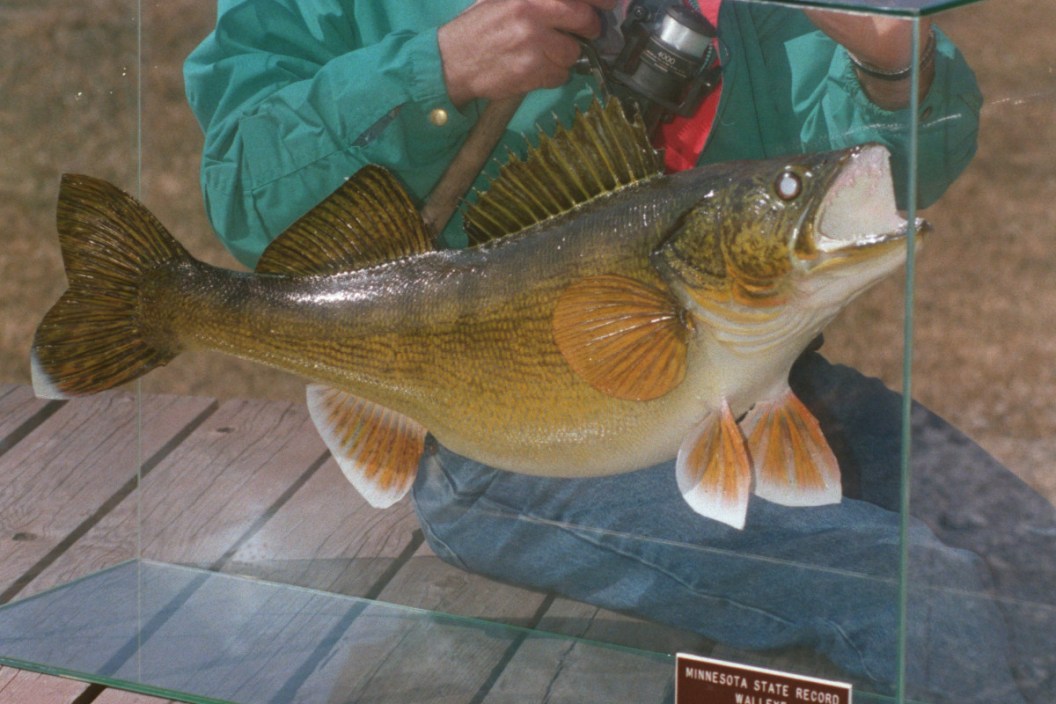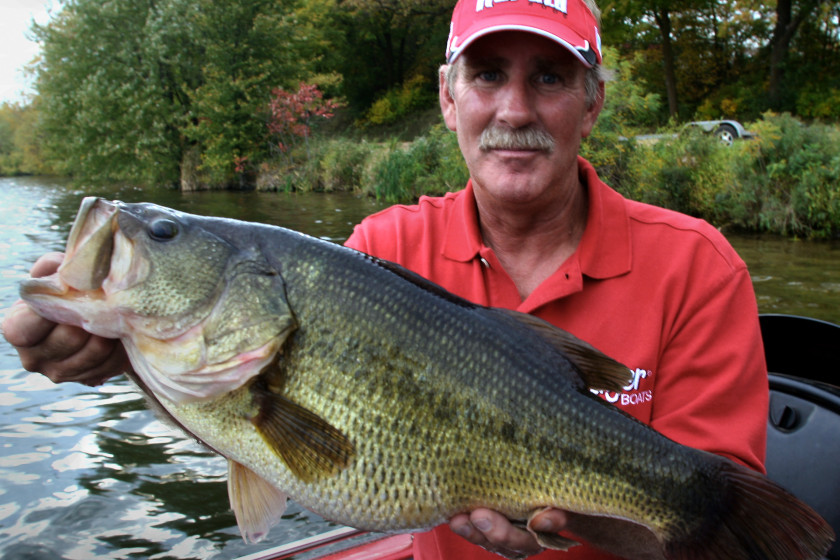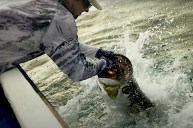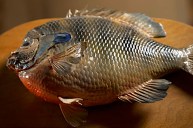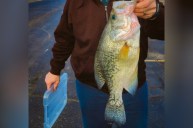In 2012, a potential world record landlocked striped bass cost angler Rodney Ply not only a shot at a coveted title, but over $1 million in prize money. Ply was entered into a fishing contest being hosted by Mustad Hooks, who were offering the awesome cash prize to anyone who could catch a world record fish using one of their hooks. So, Ply was understandably excited when he caught a massive, 68-pound striper in Arkansas' Bull Shoals Lake. There was just one problem: he couldn't find a certified scale. It took Ply, a game warden, and his buddies nearly eight hours to find one and by the time they did, the striper had spit up tons of shad from the stress and the weight dropped to 58 pounds, 3 ounces. That made the fish ineligible for both the world record title and the prize money, too.
Ply's fish was also deemed ineligible due to the type of lure used (more on that in a bit), but there's still a greater lesson to learn from the story. One never knows how or when they may end up catching a new state or world record fish. Tales like this in which anglers are left scrambling trying to find a proper scale and witnesses to document their catch are not uncommon. Ply was not the first angler to be denied a record title because the catch couldn't properly be documented in time, and it's not likely he'll be the last either. While your odds of landing a record fish are probably low, it's still worth knowing what to do in case chance you are fortunate enough to land that new record largemouth, walleye, bluegill, or whatever species you may reel in.
Know the Rules and Regulations
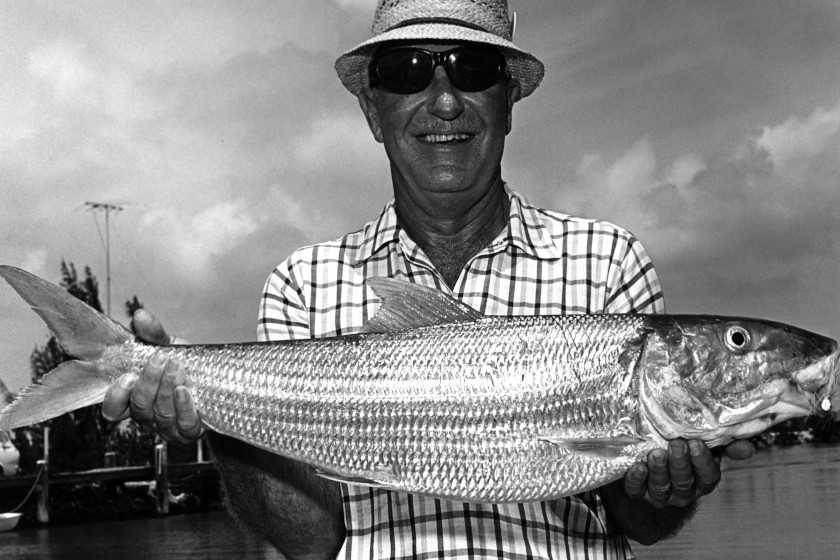
Getty Images: IGFA
This may seem like a trivial thing, but going back to the story of Rodney Ply again, the poor guy had no idea his homemade lure would be classified as an illegal spreader bar by the International Game Fish Association. This ended up leading to extra heartbreak, and Ply wound up filing a lawsuit with the organization. Make no mistake, the IGFA has very clear rules on what is and isn't allowed and they will enforce them to the letter. There's no wiggle room for interpretation here, so it's a good idea to read and understand them.
Fortunately, their list of rules is short. Their latest rules pamphlet is only about eight pages long. Most of the regulations deal with things like leaders, hook placement in the bait or lure, minimum rod lengths, and electronic components on reels. If you're going for a line class record, be aware the IGFA will ask for a sample of the line or tippet for testing to verify it is what the angler is claiming.
There are some rules that can foul up an angler's chances without them realizing it. For instance, in 2021, popular YouTube saltwater fishing personality Josh Jorgensen hooked into a massive tarpon in Colombia that was later estimated at a staggering 312 pounds. This would have shattered the all-tackle world record. Josh released the fish not realizing its significance, but even if it he had taken it in, it wouldn't have counted. At the time of the catch, Jorgensen was battling a back injury and passed the rod off to a buddy to fight it temporarily because he couldn't take the pain. This would have automatically disqualified the catch from counting because the rules state an angler must fight the fish on his or her own.
If you are submitting a fish for a state record, it's worth looking into your state's regulations too. These records are usually recorded by your state wildlife resource agency, and each one has slightly different rules on how fish may be taken for record consideration. The documentation requirements on a record fish application varies too. For instance, here in my home state of Michigan, a catch must be examined and verified by a DNR fisheries biologist before it can be certified.
It should go without saying, but you should know your state regulations. Make sure you have a valid fishing license for the area you are fishing, because record keepers will check up on those things and will reject you if they cannot verify them.
Know Where Certified Scales Are Located and How to Measure Your Catch
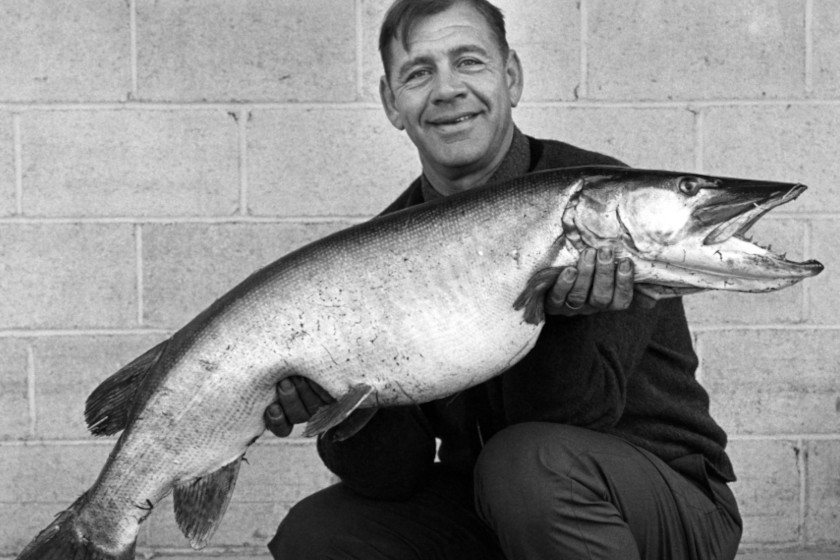
Getty Images: IGFA
As we've noted earlier, the biggest thing that trips fishermen up when they have a record catch is where to weigh it. You must weigh the fish on a certified scale for it to count, and these scales can sometimes be difficult to find. The IGFA does keep a list of official weigh stations handy on their website. However, if you start looking through the list, you'll note that not every state has a certified weigh station within its borders, and the states that do may only have one or two. That doesn't mean none are available, it simply means you'll need to do more work to locate one. We recommend doing that BEFORE you ever need one.
Some state wildlife agencies also list this information. The Texas Parks and Wildlife Department has an excellent list of scales and contact information for each location on their website. If you're still having trouble locating one, check with local butcher shops, marinas, and tackle stores. In addition to weight, we highly recommend measuring the length and girth of the fish. This helps officials verify your fish was really as large as you say it was.
The other option is to buy a scale and have it certified by the IGFA themselves. Yu can refer to their webpage for more information on doing that. The IGFA will also certify a scale after the catch with a record application. However, this is risky because if the scale is off, your catch will not count. It's better to have one certified ahead of time. Keep in mind they do charge $40 to members for this service. It can take time for them to return the scales, too. As a final note, make sure to check out the fine print on the types of scales they will certify. "The IGFA has the capacity to certify any digital or spring scale with a weighing capacity to 45.35-kilograms (100-pounds)," their website reads.
For anglers planning to pursue a catch and release record, the documentation process is slightly different because it goes by the fish's length rather than weight. For IGFA's records under this category, they will only consider fish that are measured on their official measuring device. It sells for $55 on the IGFA website.
When measuring the fish, it must be done on a flat surface and there are very specific photographic requirements of the fish needed. The IGFA requires all measurements to be made in centimeters and they're very specific on where the measurements should be made. Most state agencies with catch and release state record fish programs have similar requirements, but make sure to read all the rules and disclaimers ahead of time before you go.
How to Verify Your Catch
Many of the records in today's books (like the largemouth bass) would never count if entered today simply because there isn't a verified photo of the catch. Be prepared to take a lot of photos if you catch a big fish. The more the better. Make sure you have proper lighting so photos of the fish next to a ruler or of a scale's display can be easily read. If you are applying for a weight record, there are sometimes additional requirements. For instance, here in Michigan, you're required to keep a state record fish frozen for two weeks past the time of application. This is in case biologists need to do some additional work to ID the exact fish species you caught.
Witnesses to your catch are always a big help. You stand a much greater chance of being certified if there are people who can testify to the legitimacy and legality of your catch. This is where a fishing buddy or two can come in extremely handy. Speaking of having others around, we highly recommend contacting your state wildlife agency and having either a biologist or a conservation officer present at the weigh-in. This gives the best legitimacy you could ask for with any record catch and it should silence anyone who might accuse you of anything nefarious in the catch.
One final thing to keep in mind is that once you catch the fish, the clock is ticking. The IGFA requires all applications for a world record within the United States to be submitted and received within 60 days of the catch. You get a little more time, 90 days, for catches in international waters. Still, you don't want to dawdle after gathering all the required information.
For more outdoor content from Travis Smola, be sure to follow him on Twitter and Instagram For original videos, check out his Geocaching and Outdoors with Travis YouTube channels.
